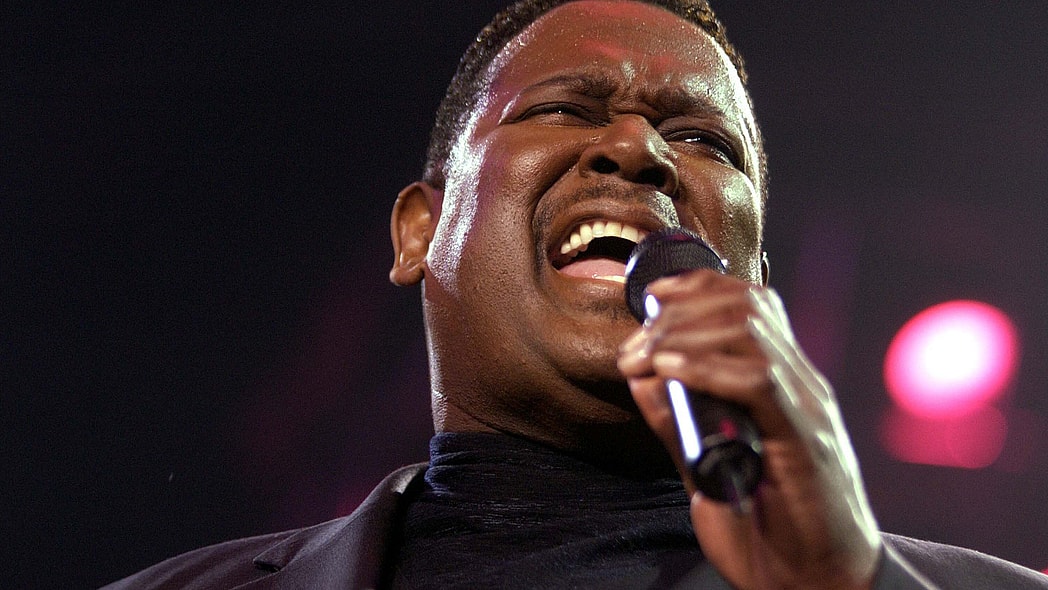Patti LaBelle nearly broke the internet this week after she posthumously outed R&B superstar, Luther Vandross, on live television.
During a recent interview on Bravo’s Watch What Happens Live! with Andy Cohen, LaBelle confirmed what had been long rumored for decades about the R&B crooner: he was a gay man. What’s more, LaBelle revealed that her departed musical peer and best friend struggled throughout his life to come out publicly.
“He did not want his mother to be [upset]–although she might have known–he wasn’t going to come out and say this to the world,” she revealed. “And he had a lot of lady fans. He told me that he just didn’t want to upset the world,” she added. “It was hard for him.”
–Patti LaBelle explains why Luther Vandross never came out the closet–
Reactions to LaBelle outing Vandross, who died in 2005, were mixed. For some, she only confirmed the biggest unkept secret in R&B history, while others simply felt it wasn’t her place.
The topic of ‘outing’ is a sensitive discussion in the LGBTQ community. Historically, it’s been a dangerous act to expose one’s sexual or gender identity in a society where LGBTQ people are ridiculed and often harmed as a result of it. Even with today’s critical strides in the civil rights and social acceptance of lesbian, gay, bisexual and trans people, being ‘out’ remains a brave and bold endeavor.
And if you’re Black and gay, it’s even more radical.
One can only imagine the anxiety Luther Vandross must have felt to even fathom the idea of being an out gay Black man at the height of his musical career in the ’80s. Luther was a sex symbol, and in the world of R&B, which was also deeply rooted in the African-American church, and Black experience at large, his sexuality would have certainly sent shockwaves through the community.
Even if he wanted to, there was no historical context for Vandross to feel secure in knowing that he would’ve still been loved for his talents despite the the community’s homophobia and deep obsession with toxic masculinity.
Though the pop world had Boy George and Elton John, as Luther’s genre contemporaries, he would have been R&B’s lone gay wolf. Being the first in the face of such oppression is always daunting; particularly when one has to confront both racism and homophobia.
For men in music at that time, there was an incredible responsibility to be a fantasy of sorts for female listeners. And for the man who made women swoon over his velvet voice, being gay just wasn’t good for business.
In fact, it doesn’t appear Vandross ever really cared that people thought he was gay–he was simply unwilling to confirm or deny it.
In a 2001 interview with Vibe, Vandross jokingly responded to the years-long chatter about his sexuality. “What do you want to know?” he asked. “Am I bicoastal? Yeah, I have houses in Beverly Hills and New York.”
“I know that I’m paying a price for being so private…and I do wonder if it’s worth it,” he added.
Not being candid about his sexuality brought an onslaught of rumors that he had contracted AIDS. What’s worse, years later, in 2000, there was an erroneous report that he had died from the disease.
Who would’ve wanted to come out in such a nasty climate? Nothing about being out at that time seemed safe or worthwhile.
Like any Black gay man, closeted or not, Vandross only desired what anyone wanted out of life: love and happiness.
In the same Vibe interview, Vandross admitted that he had never been in love. “I’m still waiting,” he said. “The time that I’ve spent being in love has never been reciprocated. Those are just the circumstances.”
His first experience of unrequited love occurred when he was just 16. “The response was, ‘Thank you, but I’m not interested,’” he recalled. “It was very painful, unrequited, and alienating–very alienating.”
“I want to play house,” he added. “I want somebody–who’s not on payroll–to care about where I am.”
How ironic that a man made famous for singing love songs on world stages, providing a soundtrack of love for generations, never truly knew love for himself.
It’s not clear if Vandross ever did find that fairytale love by the time he passed, but even if he did, it’s a shame that he struggled to simply be who he was out front and center.
Though, in 2017, we are fortunate to see better LGBTQ depictions in media, there’s still little representation in music, especially in the R&B arena. Today, Frank Ocean remains the only openly gay Black man in mainstream R&B. That alone tells us we still have a long way to go.
Unfortunately we will never know whether or not Luther would have felt empowered enough to come out, as his former J Records boss, Clive Davis, did in 2013. What we do know is that what kept him in the dark is an industry, and a society, marred by bigotry.
Should Patti LaBelle have made the decision to confirm Vandross’ sexuality? Maybe not. But it also doesn’t matter much considering the real crime is that Vandross lived his 54 years of life living for others. Having expectations that prevented him from being out, and proud of the talented and loving man that he was.
While Luther may have lived in the closet, let us honor his legacy by cultivating a better society than the one he knew. A society in which being gay doesn’t feel like a prison sentence or something to hide.


